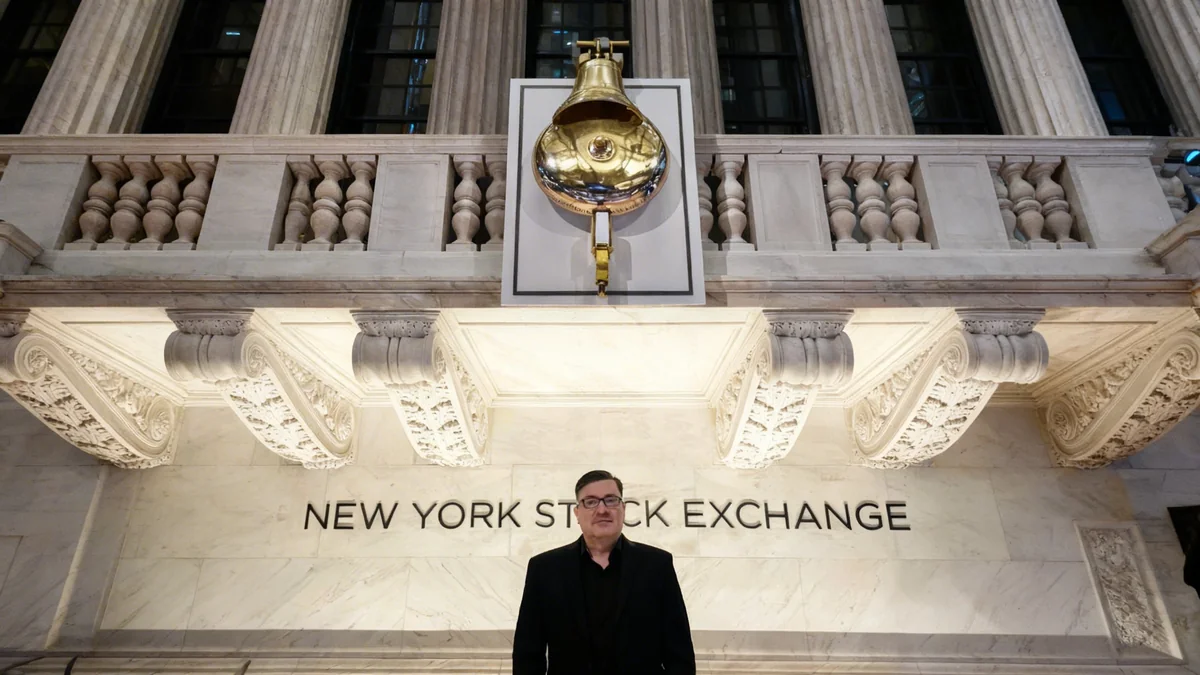Even as the U.S. stock market reaches new peaks, some of the wealthiest American investors are adopting a more defensive strategy. According to Michael Sonnenfeldt, founder of the exclusive investor network Tiger 21, members are slightly reducing their holdings in stocks and real estate, moving funds into assets like cash, fixed income, and gold.
This shift indicates a growing emphasis on wealth preservation over aggressive growth among individuals who control, on average, more than $100 million in assets. The move highlights a cautious short-term outlook despite long-term confidence in equities.
Key Takeaways
- Ultra-high-net-worth investors are slightly decreasing their exposure to public stocks and real estate, according to Tiger 21 data.
- Allocations are increasing toward more defensive assets, including cash, fixed-income securities, gold, and Bitcoin.
- The primary motivation for this adjustment is wealth preservation and managing short-term market uncertainty.
- Despite the shift, equities remain the dominant long-term holding for this investor group, with private equity also being a significant component.
A Defensive Turn in Wealth Management
Michael Sonnenfeldt recently explained that members of Tiger 21, a network for affluent investors, have adjusted their portfolios in the last quarter. “Actually, they just pulled back a couple points in the last quarter from the stock market and from real estate,” Sonnenfeldt stated in an interview with CNBC.
This adjustment is not a complete retreat from traditional markets but rather a strategic reallocation. He noted that areas once overlooked are now gaining favor. “For the first time, cash is coming up a little, fixed income is coming up a little and gold and Bitcoin,” he added.
The increased interest in cash and fixed income suggests a desire for liquidity and stable returns, particularly after a long period of low interest rates. This cautious approach prioritizes protecting the substantial wealth these investors have already accumulated.
Who is Tiger 21?
Tiger 21 is a peer-to-peer learning network for high-net-worth individuals. Founded by Michael Sonnenfeldt, the organization provides a confidential forum for members to discuss investment strategies, personal finance, and wealth preservation. The average member has an investable asset base of over $100 million, making the group's collective investment sentiment a significant indicator of trends among the ultra-wealthy.
The Rising Appeal of Hard Assets
The move toward tangible and alternative assets is a key part of this defensive strategy. Gold and, increasingly, Bitcoin are being viewed as important tools for portfolio stability.
Gold as a Traditional Safe Haven
For investors focused on preservation, gold is a natural choice. It has historically served as a reliable store of value, independent of any single government or currency. Its value often increases during times of economic instability or geopolitical tension.
The performance of gold over the past year supports this view, with its price climbing more than 40%. Some financial institutions remain bullish on its future. Analysts at both Goldman Sachs and JPMorgan have projected that gold could potentially reach $4,000 an ounce by 2026, citing factors like potential interest rate cuts and a weaker dollar.
Fact Check: Gold's Performance
Over the last 12 months, the price of gold has seen a significant increase of over 40%, reflecting heightened investor demand for safe-haven assets amid global economic uncertainty.
Bitcoin's Evolving Role
Bitcoin, once seen primarily as a speculative investment, is now being considered an alternative store of value by a growing number of wealthy investors. Sonnenfeldt noted a shift in perception within his network.
“Bitcoin as a market is still only a 10th the size of gold, but they both are secure assets in members’ minds,” he said. “For the first time, people aren't talking about Bitcoin just as speculation, but actually an alternative asset that can be held during tough times.”
A core feature driving this interest is Bitcoin's limited supply, which is algorithmically capped at 21 million coins. This scarcity contrasts with fiat currencies, which can be printed by central banks, making it an attractive hedge against inflation for some investors.
Long-Term Confidence in Equities Remains
Sonnenfeldt was careful to clarify that this defensive shift does not signal an abandonment of the stock market. For long-term growth, equities continue to form the foundation of these investors' portfolios.
“We're still overwhelmingly weighted for the mid- and long-term in equities,” he explained. “So there's long term bullish, but in the short term, it's a little choppy water, so people are trying to steady the boat in a rocky road.”
Many Tiger 21 members built their fortunes as entrepreneurs, achieving returns that are difficult to replicate as passive investors. Sonnenfeldt referenced Warren Buffett's famous strategy as a more sustainable approach for wealth preservation. Buffett has consistently advised that for most people, investing in a low-cost S&P 500 index fund is the most sensible path.
Buffett's S&P 500 Strategy
Warren Buffett has long championed passive investing for the average person. He has directed in his own estate plan that 90% of his wife's inheritance be invested in a low-cost S&P 500 index fund. This strategy provides broad diversification across 500 of America's largest companies without requiring active management.
A Nuanced View on Real Estate
Similar to stocks, the pullback from real estate is described as minor. The asset class remains a cornerstone for wealth preservation, particularly as a hedge against inflation. As the costs of labor and materials rise, property values and rental income tend to increase as well.
Buffett has also praised real estate, especially income-generating properties like apartment buildings, for its consistent cash flow. In 2022, he remarked that people will always need a place to live, making rental properties a productive asset regardless of economic conditions.
While direct ownership of property is common, many investors also gain exposure through alternative methods like real estate investment trusts (REITs) or crowdfunding platforms, which allow for fractional ownership without the responsibilities of direct management.
Ultimately, the adjustments seen among Tiger 21 members reflect a sophisticated approach to wealth management: maintaining a core of long-term growth assets while using defensive holdings to navigate short-term volatility and protect capital.





